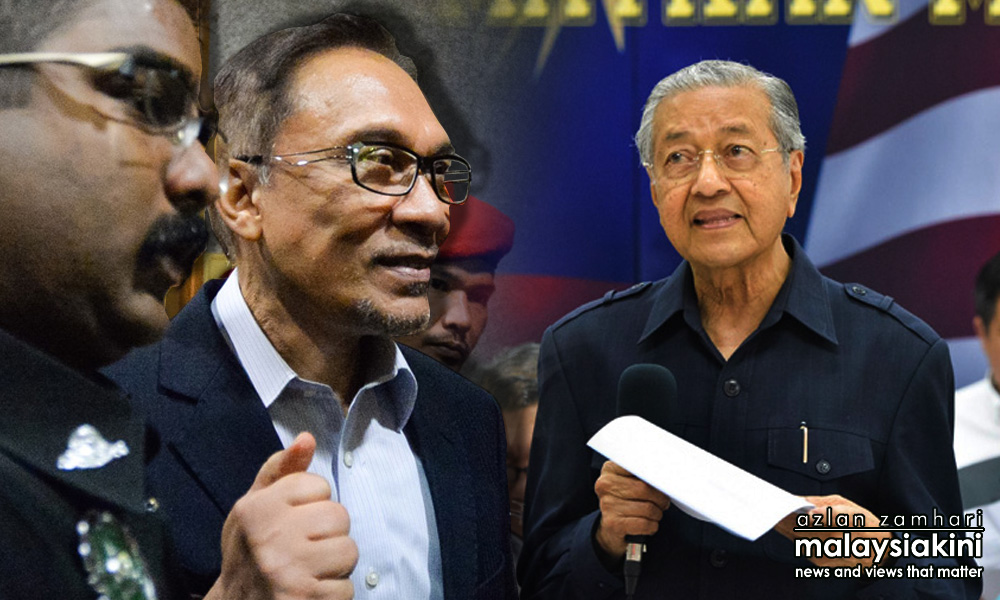
In a commentary published in the Singapore's The Straits Times, academic Norshahril Saat noted how the political discourse in Malaysia has shifted from ideologies to personalities.
“This means that problems are analysed based on the behaviour of a leader. The solution to problems often comes down to the removal of a certain leader,” Norshahril said.
As an example, he cited how former prime minister Dr Mahathir Mohamad is criss-crossing the nation calling for the removal of Prime Minister Najib Abdul Razak.
The attack on the prime minister and his family, he added, overshadowed the good that the Najib administration is done.
Norshahril, who is a fellow at ISEAS-Yusof Ishak Institute, said personality politics was also present in the opposition.
“At its recent party convention, PKR reaffirmed its commitment to making Anwar (Ibrahim) the prime minister if the opposition takes power.
“Party members carried placards indicating their preference for Anwar to lead the country, causing discomfort to Mahathir and Muhyiddin Yassin, the leaders of Mahathir's Parti Pribumi Bersatu Malaysia (Bersatu),” he added.
Norshahril said personality politics had existed during the Malay feudal fire, where loyalty to the leader superseded values and ideas.
“Stories in the classical Malay texts, such as the 'Sejarah Melayu' (Malay Annals), showcased this principle of loyalty where subjects defend their masters at all costs, even though it meant sacrificing their lives.
“For example, during the Malacca Sultanate, Malay warrior Hang Tuah accepted the death sentence decreed by the sultan, even though he was innocent. Hang Tuah eventually escaped the sentence, but came back to defend the dultan to quell a rebellion by Hang Jebat,” he added.
Land of political U-turns
Personality politics, he said, also impacted party membership, with members joining and quitting parties because of following or disagreeing with their masters.
“The danger is that disagreements are not based on issues or policy outlook. As a result, we have witnessed many political U-turns in contemporary Malaysian politics.
“Nobody would have thought Mahathir's and Anwar's families would ever reconcile. As for Mahathir joining forces with the DAP, that is shocking to many,” he added.
At present, Norshahril said, political parties in Malaysia appear to represent their respective political ideologies on a superficial level.
“The irony is that politicians who had for decades struggled for certain ideologies now seem willing to reverse them, or even cooperate with their ideological rivals.
“Currently, we have politicians who were once staunch ethno-nationalists struggling for pluralism. There are also devoted Islamists who turned liberal, then went back to their conservative ways. There are also Umno leaders who were once committed to multiculturalism but now behave like Islamists,” he added.
The academic warned that personality politics might result in weak institutions because it revolved around individual members of the elite and was not anchored by institutions.
“Such politics may also breed populism because power is attained through an individual leader's appeal to the masses, rather than through a battle of ideas.
“Over time, as politicians resort to populist statements to rally the masses, they make contradictory ones, and they are unable to articulate a consistent vision for modern Malaysia.
“To this day, politicians are unclear about the status of policies such as BR1M, Act 355 (authority of syariah courts), and whether Malaysia should be a secular state or an Islamic state.
“In the long run, Malaysians will bear the brunt of such personality-based and non-ideological politicking,” Norshahril added. -Mkini


No comments:
Post a Comment
Note: Only a member of this blog may post a comment.